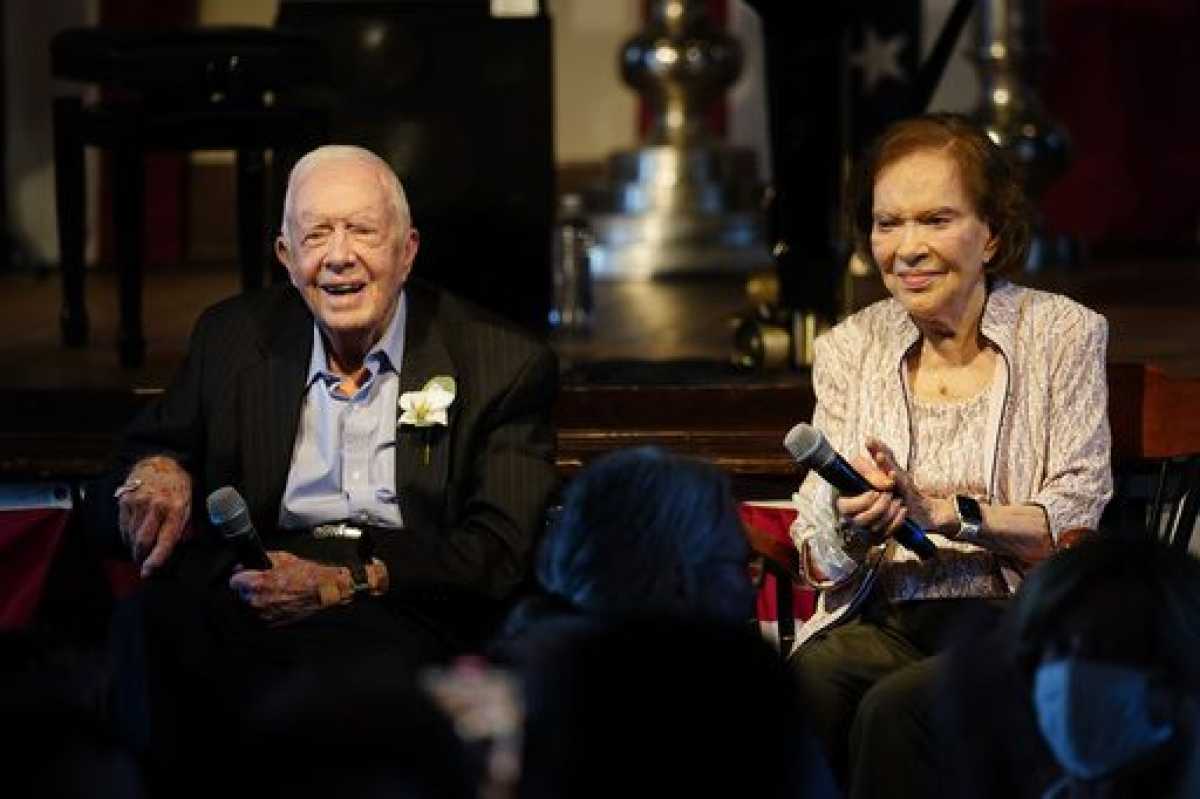Health
Former President Jimmy Carter’s End-of-Life Care Sheds Light on Hospice Services

Since former U.S. President Jimmy Carter entered hospice care at his home in south Georgia a year ago, the public has witnessed a unique portrayal of end-of-life care.
Rosalynn Carter, the former first lady, who tragically passed away after announcing her dementia diagnosis, received hospice care for a brief period with her husband by her side.
Experts in end-of-life care, such as Angela Novas from the Hospice Foundation of America and Mollie Gurian from Leading Age, commend the Carter family for bringing attention to the realities of aging, dementia, and death.
The Carters’ openness about their experiences has prompted discussions nationwide, shedding new light on the role of hospice services.
While the family has not confirmed Jimmy Carter’s current status in hospice care, their transparency has sparked important conversations about this important subject.
Hospice care is designed to provide holistic support for individuals with terminal conditions who are no longer seeking a cure.
Services typically include a team of healthcare professionals, such as nurses, physicians, and social workers, to help patients and families navigate the end-of-life journey.
Medicare covers hospice services, which are offered by both for-profit and nonprofit agencies, with specific eligibility requirements.
Contrary to common misconceptions, hospice care is not solely about providing pain relief but aims to help patients live their remaining days to the fullest extent possible.
Patients under hospice may choose to forgo curative treatments and focus on comfort care, although treatment plans are individualized based on the patient’s condition.
While some may associate hospice with end-stage care, patients can be discharged if their health stabilizes or if they surpass the initial six-month prognosis.
With the increasing prevalence of conditions like dementia, patients may exhibit varying trajectories, leading to more extended stays in hospice care.
Advocates for end-of-life care are calling for changes in Medicare to incorporate long-term care benefits, especially as the population ages.
Legislation has been proposed in Congress to expand Medicare coverage to include long-term care services, but financial and political challenges pose barriers to implementation.
The Carter family’s experience has highlighted the importance of hospice services and the need for greater access to comprehensive end-of-life care.
As Jimmy Carter continues to navigate his own end-of-life journey, his resilience and openness serve as a testament to the value of hospice care in providing comfort and support during challenging times.












